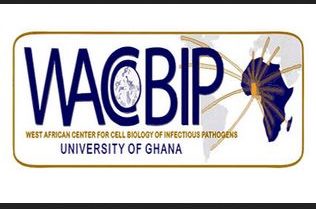The West African Centre for Cell Biology of Infectious Pathogens (WACCBIP), based at the University of Ghana, has inaugurated an International Advisory Board to strengthen its research agenda and capacity-building initiatives.
The launch ceremony, held at the center’s boardroom, brought together key stakeholders, including University of Ghana Vice Chancellor Prof. Nana Aba Appiah Amfo; Pro-Vice Chancellor for Academic and Student Affairs and WACCBIP Director Prof. Gordon Awandare; Director of Research at the Ghana Health Service Dr. Abraham Rexford Oduro; and Chair of the new board, Prof. Kirk Deitsch, a microbiologist at Cornell University.
In her remarks, Prof. Amfo praised WACCBIP’s alignment with the university’s strategic goals, particularly its emphasis on high-impact research and sustainable partnerships.
“The University of Ghana’s 2024–2029 Strategic Plan revolves around five core priorities—summarised as ‘5 for 5’—including transformative student experiences, research, support for faculty and staff, strong partnerships, and sustainable resource management,” she said. “WACCBIP’s research excellence and capacity development directly support these pillars, raising the university’s profile through international collaboration.”
Board Chair Prof. Deitsch emphasised the importance of global partnerships in advancing science and innovation on the continent.
“The advisory board’s mission is to offer strategic guidance and support to WACCBIP, harnessing global expertise to drive innovation and produce meaningful outcomes. We are excited to collaborate with WACCBIP to strengthen research, expand global networks, and improve health outcomes across Africa.”
In a post-event interview with Univers News, Prof. Amfo expressed admiration for WACCBIP’s track record in securing external funding and reaffirmed the university’s support.
“WACCBIP’s success is a point of pride for the University of Ghana,” she said. “Even as it secures its own funding, we remain committed to supporting its continued excellence. The center has made major contributions to biomedical research and talent development, and we will continue to stand by its mission.”
Since its establishment in 2014, WACCBIP has emerged as a premier training hub for African scientists, awarding more than 200 fellowships at the master’s, doctoral and postdoctoral levels across over 10 countries. The center also offers professional development programs and short-term industry training.
In addition to research and training, WACCBIP runs extensive public and community outreach initiatives aimed at making science more accessible and relevant to the broader population.
The formation of the International Advisory Board marks a new chapter in WACCBIP’s evolution, reinforcing its commitment to innovation, talent development and improved health outcomes across the continent.
-
Story by Nancy Kyeremeh|univers.ug.edu.gh
Edited by Michelle Lartey

